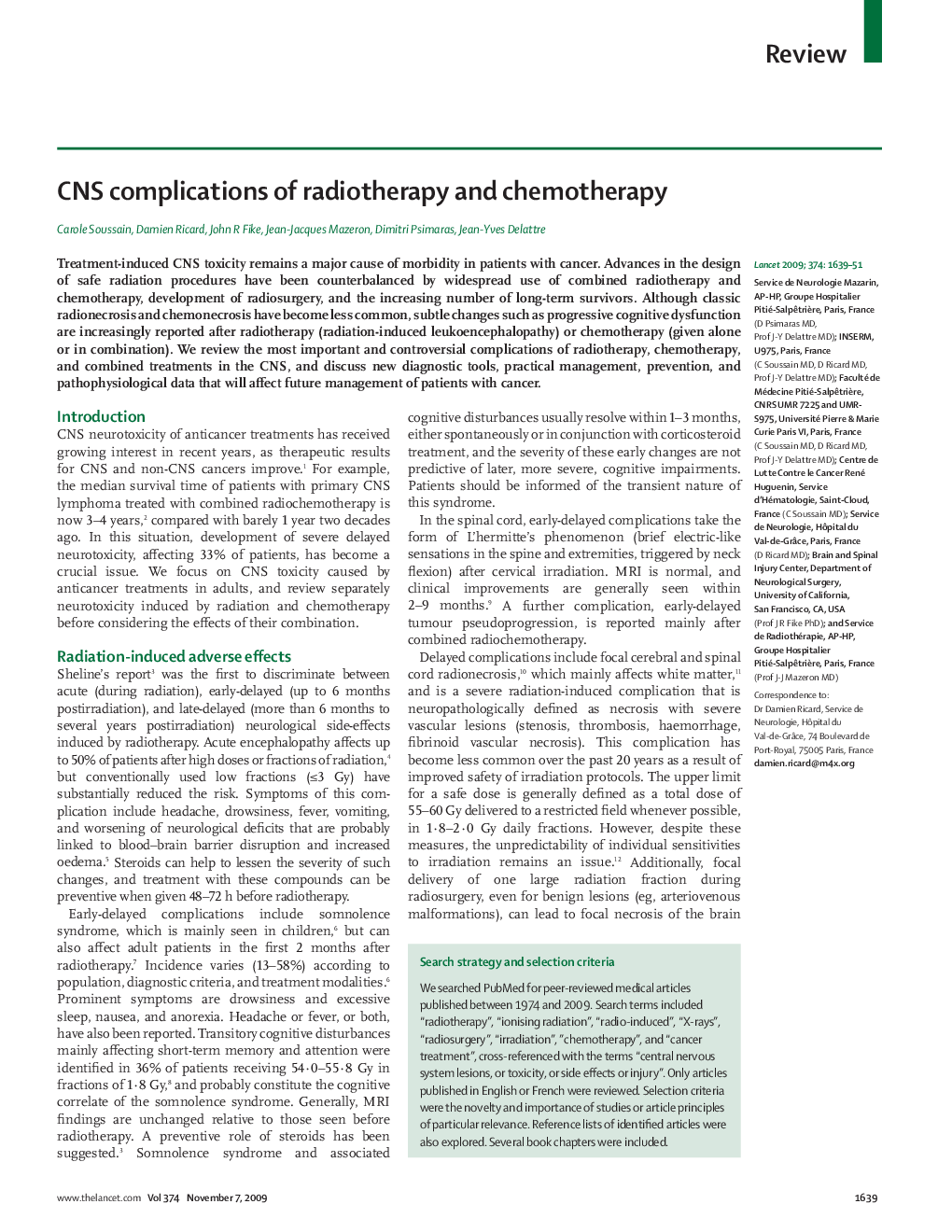| Article ID | Journal | Published Year | Pages | File Type |
|---|---|---|---|---|
| 3496285 | The Lancet | 2009 | 13 Pages |
SummaryTreatment-induced CNS toxicity remains a major cause of morbidity in patients with cancer. Advances in the design of safe radiation procedures have been counterbalanced by widespread use of combined radiotherapy and chemotherapy, development of radiosurgery, and the increasing number of long-term survivors. Although classic radionecrosis and chemonecrosis have become less common, subtle changes such as progressive cognitive dysfunction are increasingly reported after radiotherapy (radiation-induced leukoencephalopathy) or chemotherapy (given alone or in combination). We review the most important and controversial complications of radiotherapy, chemotherapy, and combined treatments in the CNS, and discuss new diagnostic tools, practical management, prevention, and pathophysiological data that will affect future management of patients with cancer.
